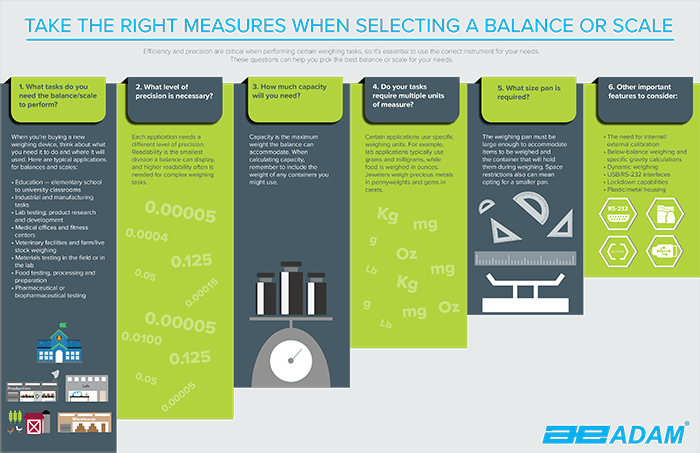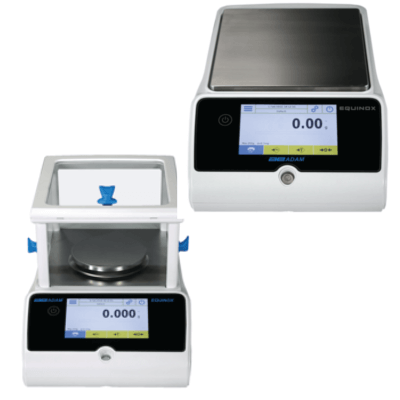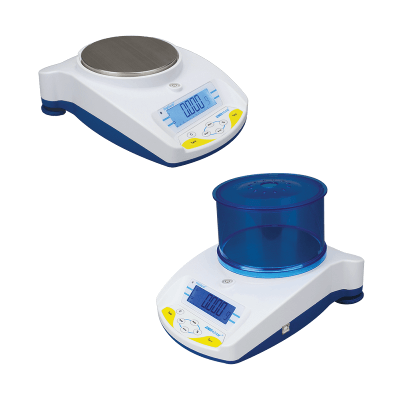
A balance is an integral component of lab work, and choosing the correct equipment is essential to obtaining efficient performance and accurate results. There are many considerations in selecting the right lab balance for the job.
Things to consider when buying a balance
When it’s time to purchase a new balance, the first step is to think about the types of applications to be performed. In addition to weighing, will you require your balance to include built-in functions such as checkweighing or formulation? Where will the balance be used – in a lab or in the field? Will you need to connect it to other equipment?
The second step is to determine the readability your balance will need. Readability is the smallest division a balance can display. Your application likely has a requirement for the level of precision in results. If you are weighing chemicals to the nearest 10mg (0.01g), a balance with readability of 0.001 is recommended.
Next, you’ll need to know the capacity required to complete daily tasks. Capacity is the maximum weight the balance can weigh. When calculating capacity, remember to include the weight of any containers you might use.
Most balances are capable of weighing in different units. Certain applications require specific weighing units. For example, scientific laboratory applications typically require grams and milligrams, jewelry often requires carats. The fourth step is to make a note of the units of measure necessary for your task.
Step five is to determine the pan size. The weighing pan must be large enough to accommodate the items being weighed, along with the container that will be holding them during weighing. The balance location also can play a part in choosing a pan size; space restrictions might mean opting for a smaller platform.
Finally, you should also contemplate the need for additional features:
- Do you have a preference for internal or external calibration?
- Do you need to perform below-balance weighing?
- Will you be weighing living, moving animals – is a dynamic weighing function important?
- To collect and record data, would a USB or RS-232 connection help?
- Does your balance need to calculate specific gravity? Some balances do this automatically.
- Will you be working with or weighing any substances or items that might warrant consideration between all-metal or plastic housing?
- Are there any workplace issues requiring lock-down capability for your device?

Choosing the right balance is an investment; the right tool for the job can improve efficiency, reduce waste, and even same money on the long run. Buying the wrong balance mean sacrificing precision and accuracy; it can be a costly mistake. Still not sure which balance is right for you? Click here to learn more about our full line of laboratory equipment. You can also contact us or reach out on social media if you have questions.
Download your laboratory balance buying guide here.


